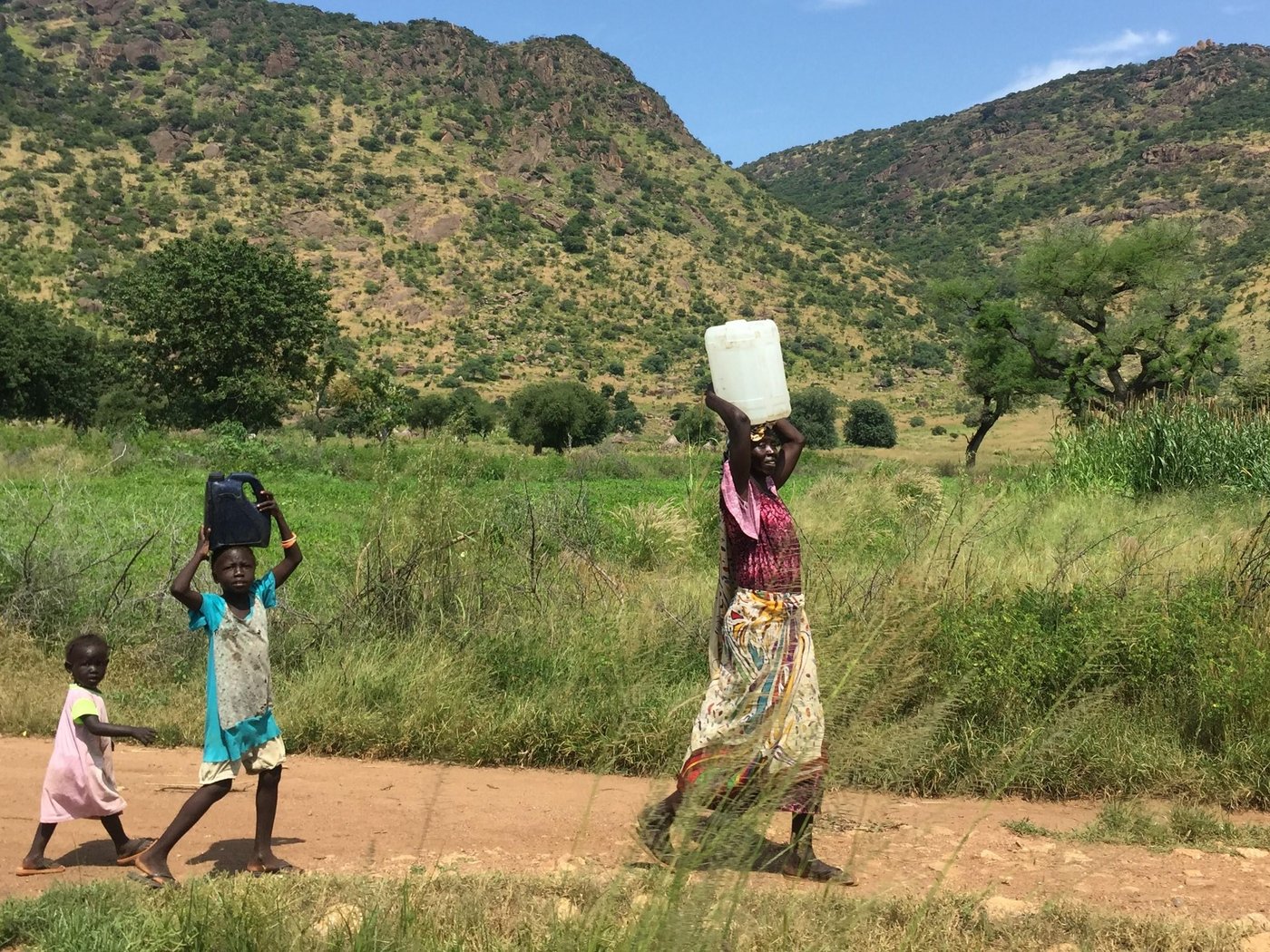The last time I came to Sudan was in 2010 when I was coordinating primary healthcare in North Darfur. Now that NRC has returned, it is exciting to be back in a country that, despite the current challenges, still offers many opportunities to influence change.
This time, my visit was to help conduct a scoping mission in South Kordofan, one of the 18 states that make up the country.
The Norwegian Refugee Council (NRC) works to support refugees and displaced people in over 30 countries around the world, including Sudan. Support our work today

Driving through the countryside, we were positively surprised to see vast areas of fertile land. The rainy season had recently come to an end, and different kinds of crops were standing tall in the fields along the way.
Yet this abundance is not without its challenges. Over the years, South Kordofan has become the centre of a protracted displacement crisis. Approximately 200,000 displaced people, many of whom have fled their homes due to conflicts over natural resources such as land and water, now live here. An additional 35,000 refugees, mainly from the civil war in neighbouring South Sudan, also call this state their home.
“I just want peace and security”
Frustration is growing among some of the long-term displaced. In one of the settlements we visited, we met an elderly woman who had recently arrived from the Tillo area of South Kordofan.
She told us: “I am old now and I have had to flee several times. I sleep on the ground – not even a mattress to support my old body. All I ask is to have a home for my last years here on earth.”
We also spoke to a man from the Nuba mountains, who said: “I just want peace and security. Why do we have to move all the time? Take us back to the mountains where we belong!”

The search for lasting solutions
Their needs are diverse, but the families living here are clear that they want more than just humanitarian assistance if their lives are truly going to change.
We can help people to meet their basic needs by providing cash assistance so they can choose what they want to spend the money on. For those that have been displaced for a longer time, however, it will be important to find lasting solutions that go beyond their short-term needs.
Young people want to be equipped with the necessary skills and tools to work and create their own future. One young man said: “we want to be able to farm, to produce our own food and create our own income”, while another told us: “we have skills like tailoring, carpentry and baking. If we get help to have assets like sewing machines and other tools, we can take care of ourselves.”
Education is a key issue for these young people. A young South Sudanese refugee told us: “I want a school that teaches in English so that I can continue my education. All schools here teach in Arabic and some of us do not speak the language.”

New ways of earning an income
Women are keen to play an active role in their families and communities. One way they can do this is by diversifying their ways of earning an income.
“We are farmers and have been growing sesame on small plots of land,” explained one group of women we met. “Now we want to sell [our produce] to get income for our families. If it was safe to farm even more land we could do so, and if we had water available we could farm vegetables all year round.”
Community leaders should be given the chance to take the lead in developing their own communities. NRC can support this by strengthening the local food systems, helping to develop better livelihood opportunities, and assisting with land rights.
A chance to respond differently
We also have a unique opportunity now to look into environmentally sustainable programmes, promoting green interventions that are linked to people’s needs and livelihoods. This is particularly important in light of the ever-growing impacts of climate change in Sudan.
Ten years on from our last operation in Sudan, we at NRC now have the chance not only to respond to the situation in South Kordofan and elsewhere, but to respond differently, more sustainably.
As this country navigates a delicate political and economic transition to get back on its feet, our job is to provide much-needed support – not just to meet immediate needs, but also to change people’s lives through truly lasting solutions.


